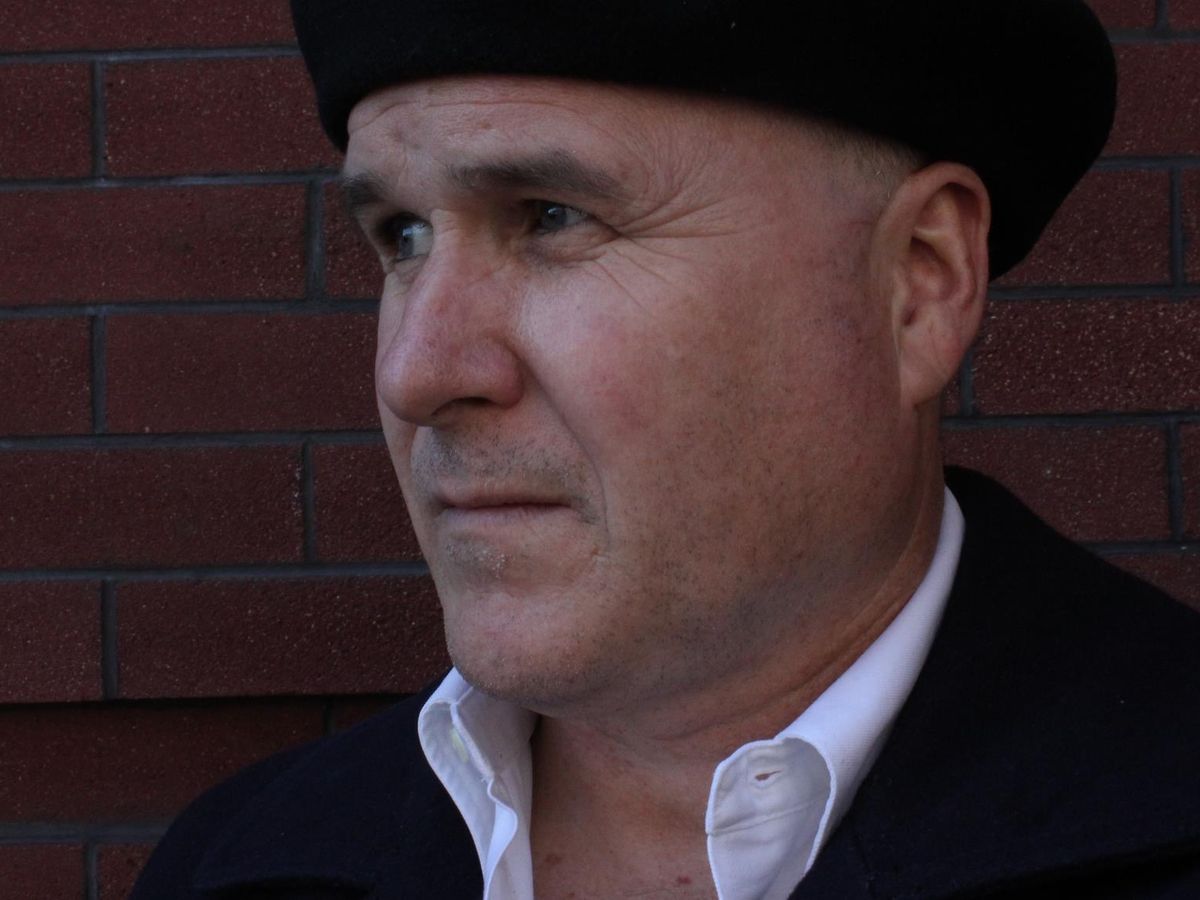A Fundraiser (and Surfing Fund) to Help Mark Judge Leave Journalism and Launch Something New
Journalism doesn’t pay anymore, especially as an outsider, which is where I’ve spent most of my career. It began in high school when me and two other guys started an underground newspaper, The Unknown Hoya. We covered parties, new hairdos, sports, girls, rival schools. One story we covered - and which to our shock would gain national attention forty years later - involved a bachelor party we threw for our music teacher. It was the early 1980s and there was plenty of beer and with a either a belly dancer or stripper - people are still arguing about which it was.
The editor of The Unknown Hoya, a guy I call Fletch, is still a friend and I editor. He reads my stuff and chimes in with praise or criticism. His instincts, honed not only by the Washington Post and New York Times but Mad magazine, Rolling Stone and National Lampoon, are still sound. He was reasonable for one of my all-time favorite captions. It appears in The Unknown Hoya under a picture of our music teacher staring at the chest of the belly dancer/stripper who stands before him: “That’s definitely not a b-flat.”
In the 1990s after college I wrote for the Washington Post. New York Times and Wall Street Journal. In 1996 after my father died I decided for the first time to leave journalism. I had one last article in the pipeline, a piece called “Manifesto of a Right-Wing Rock Fan.” I considered it unpublishable because it was so eccentric. It was picked up by the New York Press, a brilliantly feisty, funny and eclectic weekly out of New York City. The editor, Russ Smith, began running my stuff every week. The freedom was wonderful. I wrote books about swing dancing, Catholicism, baseball.
My last salaried job in journalism was in 2015, oven entrainment and Hollywood for a conservative outfit in Virginia. I interviewed people like Kirk Cameron, Marilu Henner and Brian Dennehy. The job was eventually eliminated due to midget cuts - the story of most of the media in the 21st century. It was time to bail.
There would be, however, one last project. In 2018 the political left tried to destroy me during the nomination of Brett Kavanaugh to the Supreme Court. I had gone to high school with Kavanaugh, and the political left tried to destroy him, using my 1980s youth as the weapon. Kavanaugh, a high school friend, was falsely accused of sexual assault by a women named Christine Blasey Ford, who claimed I was in the room when the alleged assault took place in 1982 when we were in high school. As Jonathan Turley put it on Fox, I was supposed to be “roadkill” in the process. Fletch, as usual, came up with the best take. When the media was actually reporting on The Unknown Hoya and our gustatory 1980s coverage, he called me with a question: “Is it too late to print a retraction”?
After Kavanaugh I had two choices. I could move to the Outer Banks, go surfing and lick my wounds. Get a little job in a grocery store or restaurant. Even my lawyer was telling to move: “You’re life as you know it in Washington is over,” she said.
The other choice was riskier. I would stay in DC, at least for a few years, continue as a journalist, write a book and get payback. That, I knew, was the only honorable choice. In Under Saturn’s Shadow, psychologist James Hollis notes that life has meaning if you are part of a larger “cosmic drama.” Here’s how Carl Jung, quoted by Hollis, described it: “That gives peace, when people feel they are living the symbolic life, that they are actors in the divine drama. That gives the only meaning to human life; everything else is banal . . . A career, producing of children, all are maya [illusions] compared with that one thing, that your life is meaningful.”
I would not get much of an advance for the book - the major publishers would never touch me, and I was glad to land with the mighty Bombardier Books.There came a point about halfway through when I had fun out of resources, was still suffering from bad PTSD, and had no where to turn to. I want to give a special thanks to the Instapundit, which highlighted my cause to his readers, who donated enough to see me going and allow me to finish.
I have several more stories in the pipeline that I’m contracted for that will carry me trough the summer. Then it’s time to bail. If you’ve liked my stories and want to leave a tip, it’s always appreciated.
I recently consulted with my old Unknown Hoya colleague Fletch about that’s next. I told him I had an advance copy of a book by a woman who was in a sorority and claims a New York Times reporter came to campus and was “deflated” that the girls weren’t more promiscuous. I hit him with my headline:
“We Were’t Slutty Enough” - Book Claims NYT Reporter was Disappointed in Low-Sex Sorority.
“That’s gold,” he said. “Just stipulate that whoever runs it can’t change the headline. We didn’t cover the bachelor bash in 1982 to punk out now.”

